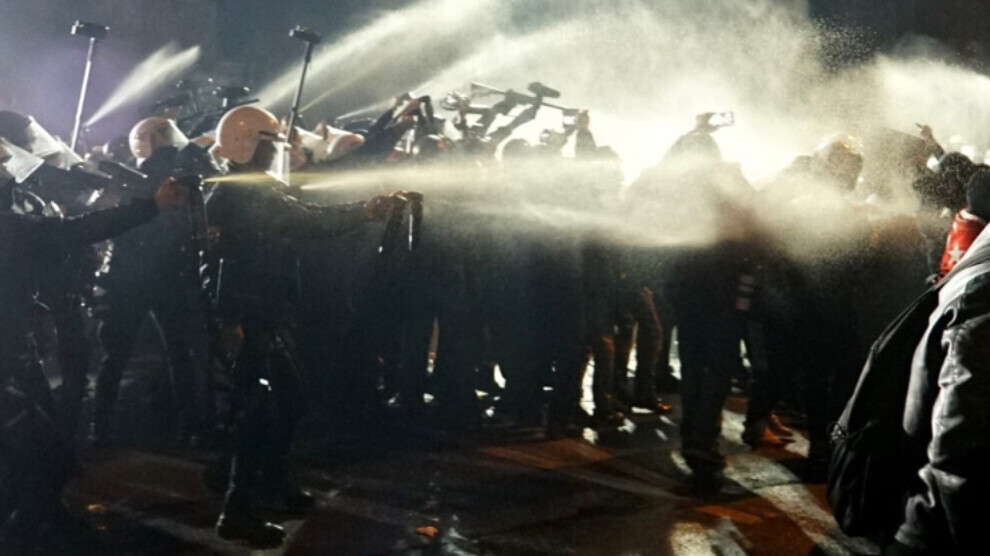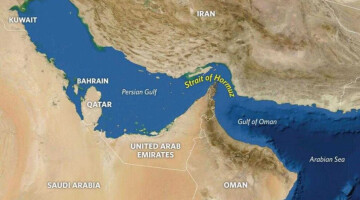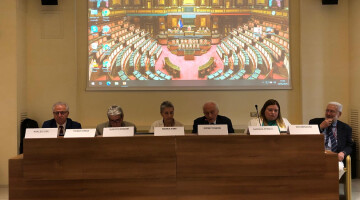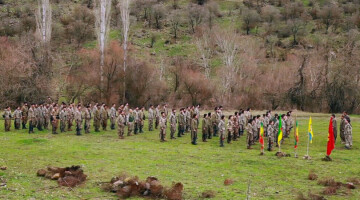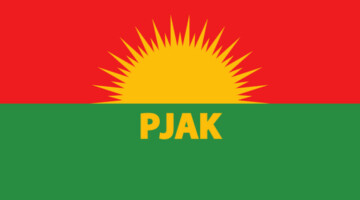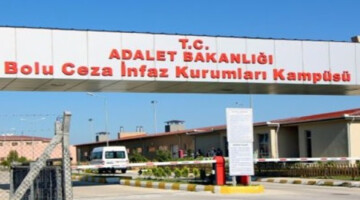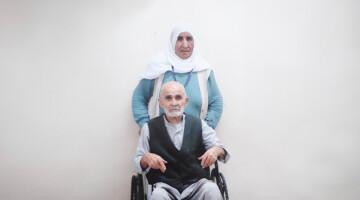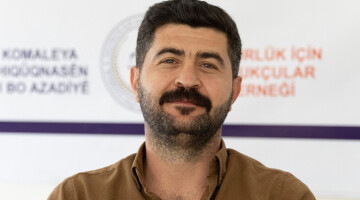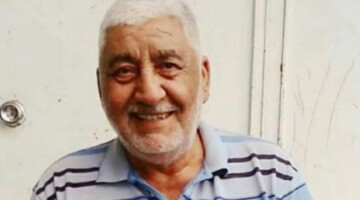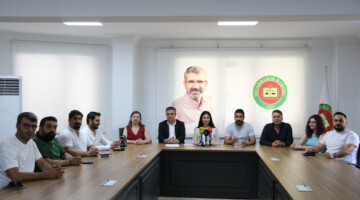Turkish authorities must carry out prompt, independent, impartial and effective investigations into alleged human rights violations committed by law enforcement officials throughout mass protests in March 2025, some of which may amount to torture, said Amnesty International in new research findings.
“I cannot breathe”: Allegations of torture and other ill-treatment during protests in March documents police violence during and in the aftermath of largely peaceful nationwide protests that erupted following the detention of Ekrem İmamoğlu, Mayor of Istanbul and Presidential candidate of the opposition Peoples’ Republican Party (CHP), and 91 others on 19 March 2025.
“Our findings reveal damning evidence of unlawful force frequently used by law enforcement officers against peaceful protesters in cities across Turkey. The authorities used tear gas, pepper spray, kinetic impact projectiles and water cannons against people who were simply exercising their rights,” said Esther Major, Amnesty International’s Deputy Director for Research in Europe.
“The violations documented constitute cruel, inhuman, or degrading treatment and, in some cases, may amount to torture. These unlawful acts of violence must be investigated promptly and the perpetrators brought to justice in fair trials.”
Peaceful protesters suffered numerous injuries and even hospitalizations. According to the authorities, law enforcement officials detained at least 1,879 people, with more than 300 people remanded in pre-trial detention by the end of March. At least eight journalists and four lawyers were indicted under the Law on Meetings and Demonstrations which criminalises participation in unauthorised gatherings. Dozens of prosecutions, in which hundreds are being hauled before the courts, began in April with further hearings pending in the months ahead.
Amnesty International interviewed 17 protesters as well as several lawyers and our Evidence Lab verified dozens of videos documenting how protesters were beaten, kicked and dragged on the ground by law enforcement officials even when they were dispersing, not resisting or were already restrained. The organisation’s researchers also obtained and reviewed court documents, medical consultation reports and criminal complaints by protesters in which details of the allegations of ill-treatment and injuries were recorded, corroborating the accounts of the interviewed individuals.
Protesters were subjected to water cannon, tear gas, kinetic impact projectiles by police, often at very close range directly targeting the head and upper body, in violation of international human rights law and standards. Officers used pepper spray directed at people’s faces often from a range of less than one metre causing burning, pain, and inflammation.
Warnings by police prior to dispersal consistently fell short of standards required by both domestic and international law, with insufficient time and space for participants to safely and voluntarily leave the protests. Almost all the people interviewed told Amnesty International that they had not heard police loudspeaker dispersal announcements or that force was deployed immediately following the warning.
One person told Amnesty International how, at a demonstration in Istanbul on 23 March, no time was allowed following a police order to disperse before the immediate use of pepper spray and kinetic impact projectiles. He described how many people trying to flee fell on top of each other like dominoes, and that police continued to use pepper spray and beat people when they were on the ground.
He told Amnesty International: “Everyone around me was screaming ‘I cannot breathe.’…Everyone was on top of each other like a human pyramid of around 30 people.”
On 23 March, one man in Istanbul’s Saraçhane Square was hit in the eye by a kinetic impact projectile. As a result, he underwent vitrectomy surgery, a procedure to remove the vitreous humour the eye, and has since been told that he might never fully recover his vision in that eye. Another protester in Ankara had his foot crushed by a water cannon vehicle.
A 27-year-old student who had joined a protest in Istanbul on 22 March told Amnesty International through her lawyer: “I was kicked so much that I couldn’t walk properly. I kept falling down. They dragged me while I was on my knees. I thought I would die.”
Another man who was at a demonstration in Istanbul on 23 March told Amnesty International: “Around six or seven riot police were kicking and punching me including in my face and head. One of them gave me a flying kick to my chest. Some of my teeth became loose due to the beating. As they were beating me, they were shouting insults like ‘I will f**k your mother, your sister’, son of a whore.”
Threats of violence, including sexual violence, were reported by others too. Student Eren Üner was detained at his home and beaten by police in Istanbul on 24 March, after sharing social media posts by police officers boasting about their ill-treatment of protesters. Üner described how police officers who detained him told him: “We’ll put you in through the back door of the riot police bus, and your corpse will come out the front door.” He also told Amnesty International: “The senior officers said they would insert a baton into me and asked for a baton from the other police officers. But this did not happen.”
“It is clear from our findings that what happened in Turkey during these largely peaceful protests in March was a blatant assault on people’s rights to freedom of expression and peaceful assembly,” said Esther Major.
“Instances of unnecessary use of force were not isolated but appear to reflect a pattern of law enforcement officials systematically targeting people who were peacefully protesting, standing by or trying to disperse. These violations are the latest in an egregious and ongoing crackdown on expressions of peaceful dissent. We call on the authorities in Turkey to ensure they are investigated and perpetrators brought to justice, with victims receiving redress for the harm they were subjected to.”
Background
Under international law, states have a legal obligation to respect and ensure the right to freedom of peaceful assembly for those who wish to gather together with others. Any restrictions on the right of peaceful assembly must be prescribed by law, pursue a legitimate aim, and be necessary and proportionate to that aim. Blanket bans on protests are presumptively disproportionate, and restrictions imposed on assemblies must instead be based on an individualized assessment by the authorities of the conduct of particular participants or of a particular assembly. Any use of force by law enforcement officials must be strictly necessary and proportionate and only the minimum force necessary may be used. Those who use unlawful force must be held accountable.
Ekrem İmamoğlu was remanded in pre-trial detention on 23 March, the same day he was nominated by his party as the main opposition candidate for the next presidential election following a symbolic primary in which over 15 million people participated. He was removed from his post alongside district mayors of Şişli and Beylikdüzü, who also face charges. By early June, four further waves of detentions had taken place with scores of elected representatives, employees of Istanbul Metropolitan Municipality as well as people from the district municipalities taken into custody.

